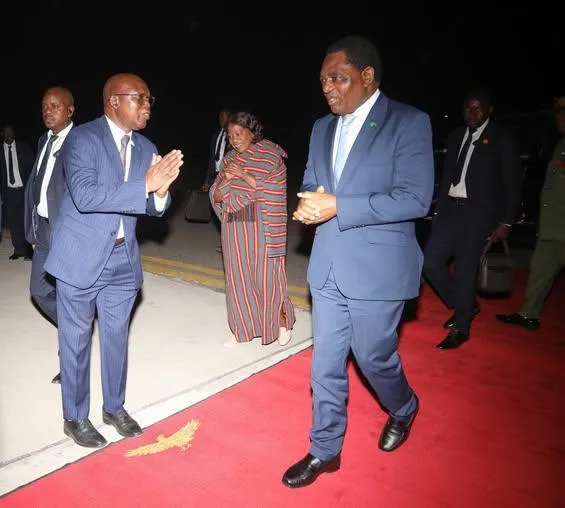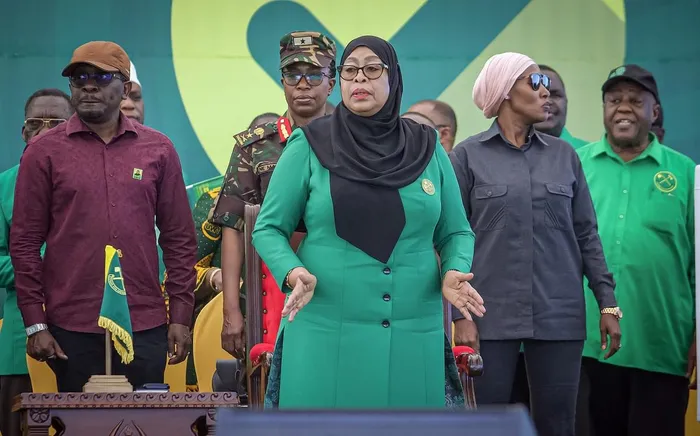
Zambian President Hakainde Hichilema boards a jet bound for Dodoma, where he will attend the inauguration of Tanzania’s President Samia Suluhu Hassan.
Image: Hakainde Hichilema/ Facebook
Zimbabwean President Emmerson Mnangagwa has congratulated Tanzania’s President Samia Suluhu Hassan on her election. At the same time, Zambian President Hakainde Hichilema has departed Lusaka for Dodoma to attend her inauguration — a ceremony being held amid mounting controversy over Tanzania’s highly contested polls.
In a letter dated 2 November 2025, Mnangagwa hailed Suluhu’s victory in the 29 October general election, describing it as “a reflection of the trust and confidence that the people of Tanzania have in your visionary leadership.”
He pledged to strengthen the “bonds of friendship and solidarity” between Zimbabwe and Tanzania, reaffirming the two nations’ historic ties as former liberation allies.

Tanzania’s Samia Suluhu Hassan is set to be inaugurated.
Image: AFP
Meanwhile, Hichilema announced his departure early Monday, writing on Facebook: “Good morning fellow citizens. We have left for the United Republic of Tanzania to attend the inauguration of that country’s President-Elect, Her Excellency Samia Hassan Suluhu. Zambia and Tanzania enjoy a historical relationship in many sectors, dating back to pre-independence days. We thank you for your usual prayers as we travel to attend this important ceremony.”
Hichilema’s presence at the ceremony underscores the delicate balance between diplomatic solidarity and democratic principles in southern Africa. Widely viewed as one of the region’s reformist leaders, Hichilema’s attendance at Suluhu’s inauguration has drawn attention because of the contested nature of Suluhu's election.
Tanzania’s electoral commission declared Suluhu the winner with an overwhelming 98 percent of the vote, a result the opposition and rights groups have rejected as deeply flawed. The opposition CHADEMA party said its leader, Tundu Lissu, was arrested and charged with treason ahead of the vote, while reports of media censorship, internet blackouts, and violent crackdowns on protesters have prompted international concern.
Several people have reportedly been killed in post-election unrest, according to the United Nations, while Tanzanian authorities have defended the polls as free and fair.
Analysts say Mnangagwa’s warm tone and Hichilema’s participation both highlight a pattern of regional diplomacy in which African leaders publicly endorse election outcomes in the name of stability, even when democratic processes are under scrutiny.
“Mnangagwa’s letter is a gesture of solidarity rooted in liberation movement politics,” said a Harare-based analyst.
“It’s also a signal that regional unity often takes precedence over questions of electoral legitimacy.”
The inauguration, set to take place at Jamhuri Stadium in Dodoma, is expected to draw several African heads of state. Despite the controversy, Suluhu is poised to begin a new term as Tanzania’s president.
For Harare and Lusaka, the moment underscores both countries’ longstanding ties with Tanzania — from the Tazara Railway built in the 1970s to ongoing cooperation in trade and energy. But it also raises deeper questions about the region’s stance on democracy and accountability, especially as southern Africa grapples with its own political transitions.
jonisayi.maromo@iol.co.za
IOL News